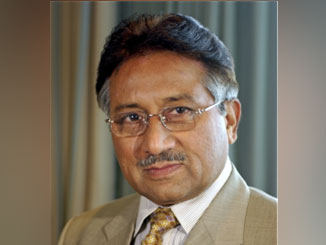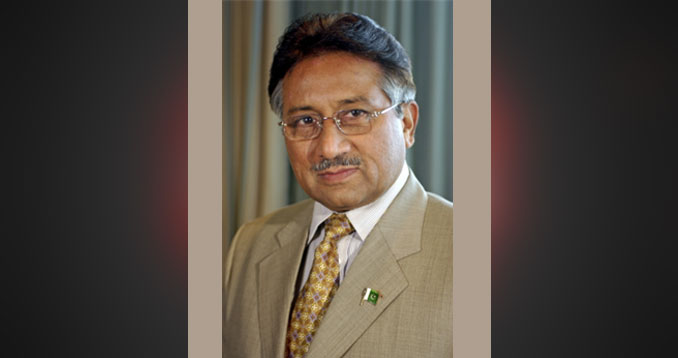

At a glance
- 1943 Born in Delhi, India
- 1961 Joins Pakistan Military Academy
- 1999 Leads bloodless coup and becomes president two years later
- 2007 Loses power
- 2008 Goes into self-imposed exile – returns from 2013 to 2016
- 2014 Charged with high treason
- 2023 Passes away
The third and the last military coup in Pakistan took place in 2007 when Gen. Pervez Musharraf took over from Nawaz Sharif. Sharif was already facing backlash from the country for retreating the Pakistani forces out of Kargil. Sensing the possibility of a military coup, Sharif attempted to replace Musharraf from his position as the Chairman of the Joint Chiefs of Staff Committee but this wasn’t possible as the army itself favored Musharraf and instead, removed Sharif from his post and replaced him with Musharraf. Musharraf finally resigned and brought an end to Pakistan’s last military coup in 2008 with Asif Ali Zardari becoming the new President.
Pakistan has been under military coups thrice under four different military rulers. Pakistan is constitutionally a democratic parliamentary republic with its political system based on elected form of governance. But over the years, it has continuously fallen under the rule of martial law.
Pakistan first came under military rule in 1958 when President Iskander Mirza abrogated the constitution and declared martial law with Gen. Ayub Khan as the Chief Martial Law Administrator, a few weeks later Ayub Khan was made the President of Pakistan. This first martial law lasted 44 months officially but Gen Ayub Khan only left office in 1969 and named Gen. Agha Mohammad Yahya Khan as his successor. Like Khan, Gen. Yahya Khan was the Chief Martial Law Administrator. After the severe loss to India in the war of 1971, Gen. Yahya Khan unlike Gen. Ayub Khan could not choose his successor and had no choice but to name Zulfiqar Ali Bhutto, who emerged victorious in the nation’s first general elections, as his successor.
The second military coup took place in 1977 when Gen. Zia ul Haq and his army dissolved the parliament and placed Bhutto under house arrest. Zia ul Haq initially came to power promising a fairer election with an even more suitable result but it was soon realized that Zia had no intention of leaving. Gen. Zia ul Haq finally resigned in 1985 after handpicking Muhammad Khan Junejo as the country’s new prime minister while also ending Pakistan’s second experience under martial law.
The National Assembly in 2010 passed the 18th Amendment of the Constitution of Pakistan. This amendment implemented a lot of changes but the one most highlighted was that it removed the power of the President of Pakistan to dissolve the parliament unilaterally turning Pakistan from a Semi-Presidential to the Parliamentary Republic. The main aim of implementing such a big change was to ensure that Pakistan now moved in a democratic direction preventing any sort of military coup from taking place. It was then assumed that the power of the military would as a result of this amendment reduce comparatively; the power once held entirely by the army would be divided equally amongst the other democratic bodies (i.e. the legislature, executive, and judiciary). Though Pakistan has since seen a fairly democratic transition of powers amongst the heads of the states, the influence of the army on the decision-making bodies hasn’t reduced recent developments suggest that it has increased in more subtle but prominent ways.

Leave a Reply